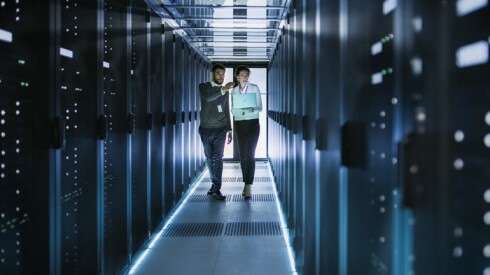-
The College Board’s new ban on Internet-connected smart glasses signals a broader shift, where schools must move beyond traditional test proctoring toward more sophisticated data forensics to ensure exam integrity.
-
Experts and public-sector technologists say the AI-powered software development technique may one day offer government the ability to fast-track ideas, improve procurement and more.
-
Miami is still a long way from fixing its traffic and public transportation woes, but there may be a credible solution on the horizon that sounds like it’s from the future — electric flying taxis.
More Stories
-
A group of residents in Festus, Mo., is demanding that the city hold a special election to allow residents the chance to decide whether to ban large-scale data centers for the next 10 years.
-
As Americans grow increasingly frustrated over their electricity bills, states are trying to keep the nation’s growing number of data centers from causing higher energy costs for consumers.
-
Ahead of the application deadline for the eighth annual Transit Tech Lab challenge, officials and tech leaders from New York City transportation organizations revealed areas ripe for innovation.
-
The Circuit Court initiative is a trial in replacing an entirely manual process. So far, the sheriff’s office and about 40 municipalities are on board and 20 more are expected by the end of March.
-
The project won approval on a 5-1 vote despite significant public opposition. Council members argued the center would be a chance to boost tax revenue without burdening area schools.
-
The Santa Ana Police Department is proposing to spend about $683,000 on a contract to launch the city’s drone program, pending approval from the City Council.
-
SponsoredFacing budget cuts? Learn how Fort Myers, Fla., and the South Carolina Dept. of Commerce used a no-code ITSM tool with AI and automation to improve service delivery without adding head count.
-
State lawmakers are ramping up data center pursuit a year after passing controversial legislation aimed at drawing data centers to West Virginia at the expense of local government control and funding.
-
The AI Learning and Innovation Hub empowers responsible public-sector experimentation and development of AI technology, using an open source model to support broader applications of tools that emerge.
-
Through electronic queueing and a pilot of drive-through court services, the governments hope to handle a rise in court transactions driven largely by an increase in traffic violations around school buses.
-
With a massive artificial intelligence data center set to open in the area outside of Kansas City, Independence plans to reopen and majorly expand the capacity of a decades-old power plant to fuel it.
-
A community north of Ann Arbor has begun working on establishing local regulations for data centers after grappling with a controversial proposal for a massive data center campus.
-
The state’s Department of Natural Resources has long conducted aerial surveys of its wildlife, and that count might be made more accurate soon through the use of new technologies.
-
Even with nearly 10,000 active Starlink satellites in orbit and the OneWeb constellation of 650 satellites, solid Internet coverage is not a given across vast swaths of the planet.
-
Entities including an uncrewed aviation company are exploring use cases. Organizers indicate the city’s proximity to training and National Guard drone operations make it a good fit.
-
A state lawmaker wants to put at least a three-year pause on development of data centers, which have been topics of heated debate recently in several communities across Oklahoma.
-
The bill would prevent “economic prejudice” by prohibiting surveillance pricing in grocery stores, banning surge pricing on essential goods and pausing the rollout of electronic shelf labels.
-
The new plan reflects a move from piloting emerging technology to operationalizing AI. The department has done more than a dozen AI projects and is actively developing upwards of 20 others.




























